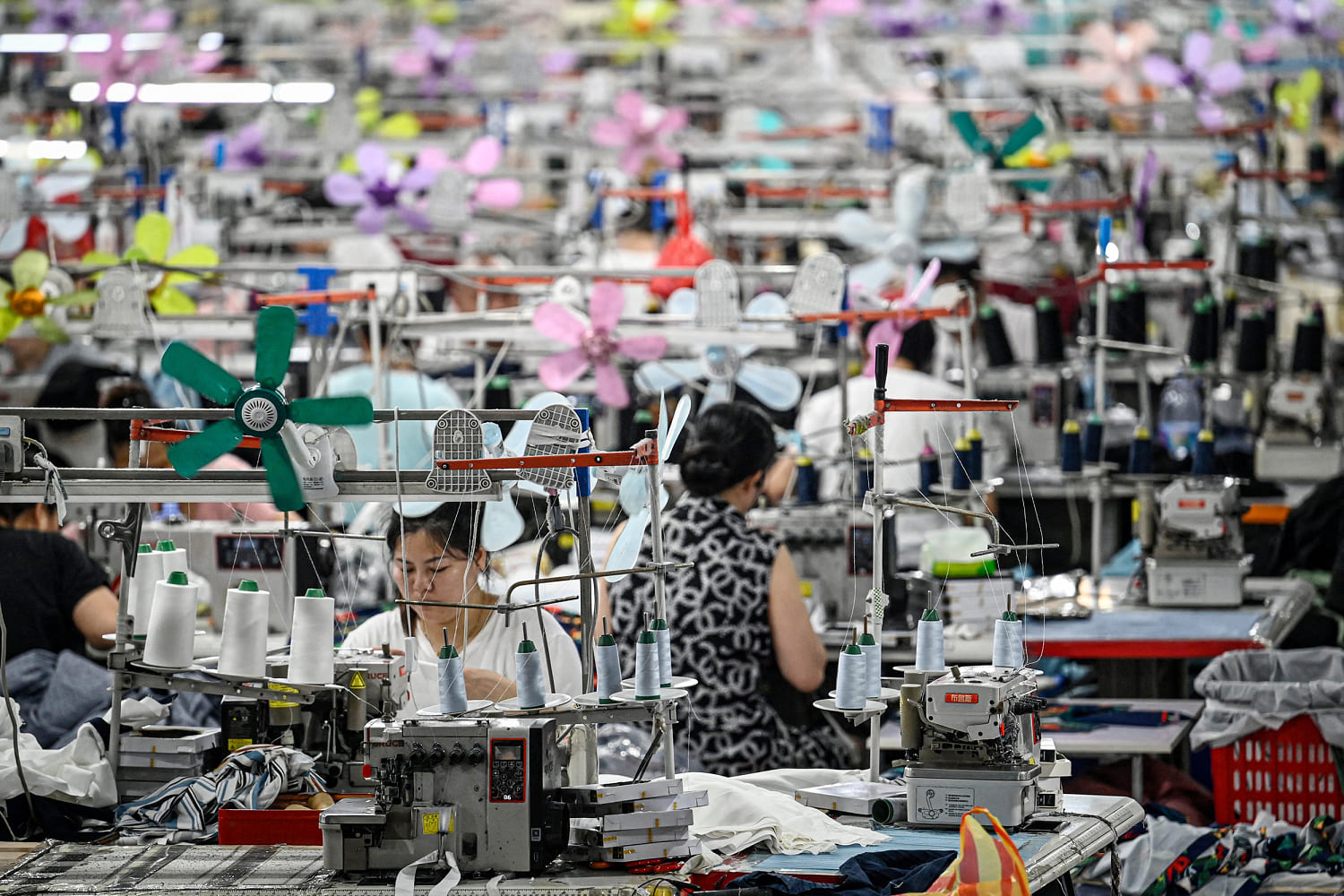
HONG KONG — China said Thursday it would take all “necessary measures” to protect its legitimate interests after it was hit particularly hard by President Donald Trump’s sweeping tariffs on U.S. trading partners around the world.
Starting April 9, imports from the world’s second-biggest economy will be subject to an additional U.S. tariff of 34%, Trump said Wednesday at the White House, as he unveiled a long list of what he called reciprocal tariffs. That is on top of 20% in tariffs that he has imposed on China since taking office in January, bringing the total to 54% — the highest U.S. tariff on any country.
The president said the new tariffs — which he described as the biggest reorganization of the global economy since World War II — are aimed at reviving domestic manufacturing and rebalancing trade relations with a wide range of countries.
China said Thursday that it firmly opposed the tariffs and would take “necessary measures” to protect its interests.
“The U.S., under the guise of ‘reciprocity,’ has imposed tariffs on products from multiple countries, including China, which seriously violates WTO rules and undermines the rules-based multilateral trading system,” Foreign Ministry spokesperson Guo Jiakun said at a briefing in Beijing.
Unlike with past tariffs when smartphones and other electronics were exempt, the latest levies appear to affect them, said Tianchen Xu, a senior China economist at the Economist Intelligence Unit, a financial forecasting service.
“No product made in China is safe,” Tianchen said.
The tariffs will be a “big blow” to China’s low-cost manufacturers, particularly at a time when Chinese President Xi Jinping is struggling to boost domestic demand, he added.
In addition to the tariffs, Trump has ordered the closing of the “de minimis” trade loophole that has fueled the explosive growth of Chinese retailers such as Temu and Shein.
Xu said the tariff increase could push China to negotiate, including on issues such as the sale of TikTok’s U.S. operations by its Chinese owner to keep the short-video app from being banned, the deadline for which is Saturday.
China “has been very reluctant to engage with the U.S., but I think its calculus might be changing,” he added.
The 54% total is close to the 60% or more in tariffs that Trump threatened to impose on China during his 2024 presidential campaign, and by some calculations it is actually more than the 70% for some products when tariffs imposed during Trump’s first term are taken into account.
“At this level, many Chinese products are no longer price competitive,” said Xin Sun, a political economist and China specialist at King’s College London.
